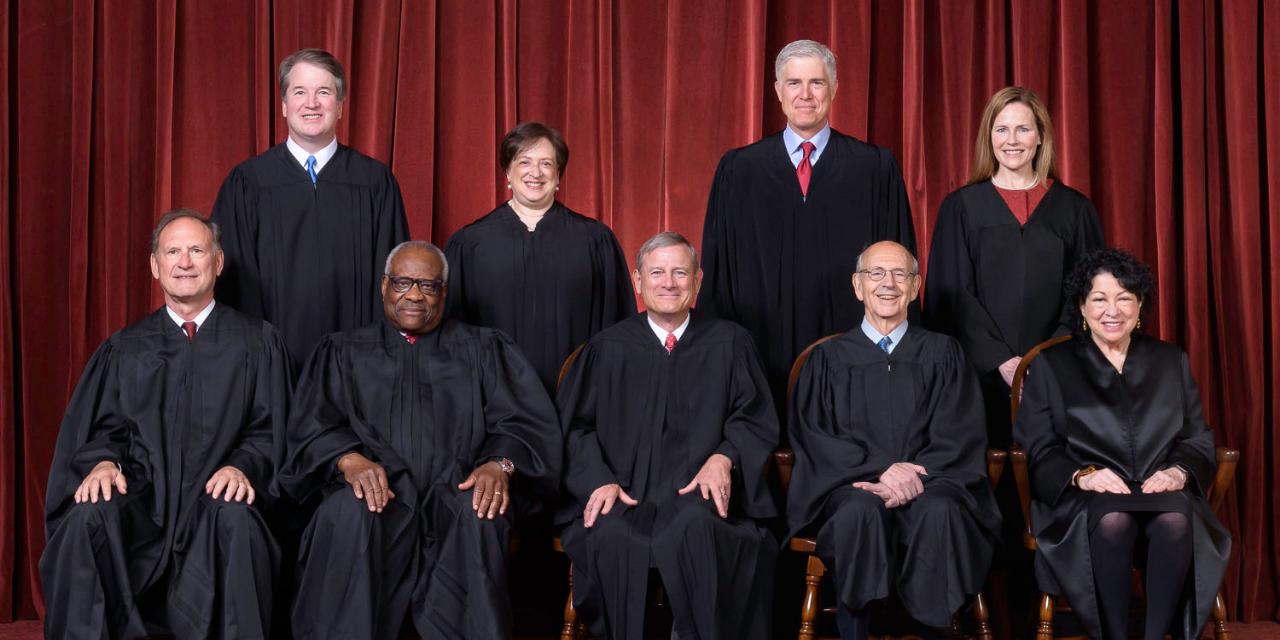In a speech at the University of Notre Dame recently, Justice Samuel Alito, took the opportunity to address recent criticisms of the U.S. Supreme Court from the media, politicians and even a fellow justice, all relating to its so-called shadow docket. He said it feeds efforts to intimidate the court.
The court’s shadow docket, or as Alito called it, the “emergency docket,” involves emergency requests to stay lower court actions as the legal process unfolds. They are not the typical appeals that the court gets after federal district courts, followed by the circuit courts of appeals, have all addressed the factual evidence and analyzed the legal arguments. The emergency timing of such requests doesn’t allow for full briefing and oral arguments, but the court is not issuing any final orders, either.
Liberals, including Justice Elena Kagan, are especially unhappy with the court’s emergency ruling in the Texas heartbeat law case in which the justices, in a 5-4 vote, refused to block the law from going into effect. Kagan let her feelings be known in her dissent and criticized the shadow docket process.
“In all these ways, the majority’s decision is emblematic of too much of this Court’s shadow-docket decision-making — which every day becomes more unreasoned, inconsistent, and impossible to defend,” she wrote.
The other two types of cases Alito pointed to as drawing similar criticism recently had to do with immigration and the eviction moratorium related to COVID-19.
“Our decisions in these three emergency matters have been criticized by those who think we should have decided them the other way, and I have no trouble with fair criticism of the substance of those decisions,” Alito said.
“My complaint concerns all the media and political talk about our sinister shadow docket. The truth of the matter is that there was nothing new or shadowy about the procedures we followed in those cases — it’s hard to see how we could handle most emergency matters any differently.”
The U.S. Senate Judiciary Committee, which no longer has a conservative majority, initiated hearings into the court’s shadow docket following the justices’ ruling in the Texas case. Senators as well as witnesses clashed in their views of the court’s handling of emergency requests.
It’s obvious to many that the recent criticism of the court is meant to soften it up in advance of this term’s blockbuster abortion case from Mississippi, Dobbs v. Jackson Women’s Health Organization, scheduled for oral argument on December 1. That case involves the constitutionality of the state’s 15-week abortion ban. The state’s lawyers are asking the court to uphold the law and, at the same time, overrule Roe v. Wade.
Ed Whelan, noted legal expert and former law clerk to Justice Antonin Scalia, pointed out in a blog at National Review’s “Bench Memos” that the “emergency” nature of the last-minute request from the Texas abortionists to block the Lone Star State’s new heartbeat law was entirely of their creation.
“In short, a full 80 days passed between enactment of the Act and the abortion providers’ motion for a preliminary injunction,” Whelan noted. “And that motion was filed just 25 days before the effective date of the Act. It seems obvious that the abortion providers’ lawyers were trying to obscure the severe jurisdictional obstacles their motion faced and to rush the district court to grant ill-considered relief.”
In other words, as Whelan goes on to explain, the abortionists who brought the lawsuit tried to intentionally game the system by delaying their lawsuit for months, then forcing the lower courts to act quickly, and then appearing at the Supreme Court’s doorstep at the last possible second claiming the need for immediate relief.
They didn’t get that relief, as the high court’s ruling explained.
“The applicants now before us have raised serious questions regarding the constitutionality of the Texas law at issue. But their application also presents complex and novel antecedent procedural questions on which they have not carried their burden,” the unsigned majority opinion read.
Pollsters like Gallup are adding fuel to the fire by reporting that approval ratings for the court are now at 40%, down from 49% in July, noting that its latest poll was conducted “shortly after the Supreme Court declined to block a controversial Texas abortion law.”
But the laymen who respond to Gallup polls only understand the political ramifications of Supreme Court decisions, not whether the decisions they issue are legally correct or not. And that’s an invalid basis for answering a poll about whether you “approve” of the work of the high court or not. But that doesn’t prevent the pollsters from trying to create controversy.
Don’t miss the big picture here. The media criticisms, Senate committee hearings and approval polls are designed to have one effect – to send a warning to the conservative justices on the court that they had better vote correctly in the upcoming Dobbs case. And that means not only striking down Mississippi’s 15-week abortion ban but affirming the continuing constitutional validity of Roe v. Wade.
Please continue to pray for all of the justices as they address the important issues – including abortion and religious freedom – in the upcoming term which begins Monday, October 4. Pray that they will remain unaffected by the “criticism” from the left and only focus on correctly deciding the issues presented to them based on the text and original understanding of the Constitution and laws they interpret.
Photo from U.S. Supreme Court/Fred Schilling.






